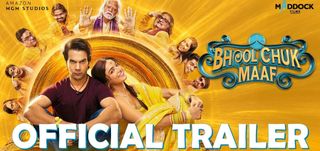Nishabd Movie Review
Finally there's just the man and his looming loneliness. He could end it right now. But he chooses to live on, so that he could live with the memories of lost love for a bit longer.
Ram Gopal Varma's "Nishabd" leaves you speechless. Its pulsating but humane play of light and shade within the sprawling gorgeous greenery of a tea estate is the closest you're going to come to the passion of a renaissance painting in Hindi cinema.
Varma's mastery over visuals, which tells a tale of reclamation and retribution, has never been in doubt. The qualities that have always made his cinema look unique have been applied to a theme that has so far remained forbidden to Varma's range of vision.
In narrating a 60-year-old 'happily' married man's sudden passion for his daughter's 18-year-old friend, Ramu goes for the jugular.
The luminous language of "Nishabd" makes you grope for new words to describe the experience of watching a film that unfolds like the petals of a wild but tender flower.
"Nishabd" is a brooding look at an autumnal life that suddenly finds excitement. The eruption of passion is manifested in little things like the sprout of a gushing water fountain, or the atypical laughter of a patriarch who has just discovered the clandestine pleasure of playing footsie under the table with his daughter's friend.
The confusions, turmoils and playful expeditions into emotional areas that no Hindi film has dared to visit, makes this Varma's most accomplished film to date.
He leaves behind the gangsterism of "Satya" and the violence of "Company". Never afraid to take risks, Varma plunges straight into a fear-filled heart of an aging man who suddenly experiences emotions that he never knew existed within him.
Both the director and the protagonist venture into unlit territory of bright, smothered passions with arresting aplomb.
You've seen Varma ferret out a unique performance from Bachchan in "Sarkar". Nothing prepares you for the flowing emotions that spill out of the superstar's eyes, face and entire being as he grapples with his uncontrollable feelings for the feisty Jiah.
In "Nishabd", Varma has achieved that synthesis of time and experience that gives human relationships a spin of eternity.
Technical soundness is of course a hallmark of Varma's cinema. He applies his trademark technique - restless camera movements and unpredictable shot divisions - to a world far removed from the violence and horror of his earlier cinema.
Bachchan's character convincingly goes into the recesses of the wounded human heart in search of the answer to that one question - what's the purpose of our existence?
According to Varma's superb dialogue writer Amrik Gill, it is happiness. That quest for joy, which we forfeit in our pursuit of day-to-day aspirations, is retrieved in this elegiac yet exhilarating film about re-discovering passion and disconnecting it with sex.
There are innumerable moments of unalloyed cinema in this sensuous treatise on forbidden passion. Bachchan's lighter moments with the whimsical 'Lolita' of the new millennium are saucily grand.
It's the smothered and sublime tragedy that he builds around his character - its journey from restrained amusement to a stunning slouch - that makes his performance exceptional.
Bachchan's chemistry with young Jiah (unarguably Varma's best discovery to date) is so virile, vulnerable, tender and yet invincible at the core.
A special word for Amar Mohile's background score. It creates a new intimate idiom of expression, unifying the call of the human heart with nature and its most flawed creation - the human being.
"Nishabd" elevates the traditional language of cinema to the plane of unrhymed poetry.
OTHER REVIEWS



















